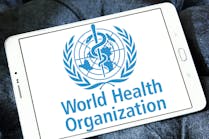HHS expanding home and community-based services
The U.S. Department of Health and Human Services (HHS), through the Centers for Medicare & Medicaid Services (CMS), awarded approximately $25 million in planning grants to five new states and territories to expand access to home and community-based services (HCBS) through Medicaid’s Money Follows the Person (MFP) demonstration program.
With these awards, 41 states and territories across the country will now participate in MFP.
“The Biden-Harris Administration is deeply committed to ensuring everyone is able to get the high-quality care they need – within the comfort of their own home or community,” said HHS Secretary Xavier Becerra. “Today we are expanding access to home and community-based services so even more states and territories are equipped to best serve the millions of seniors and people with disabilities across the country.”
“We’re putting the full weight of this agency behind solutions that can meet people where they are and help get them to where they want to be when it comes to health care,” said CMS Administrator Chiquita Brooks-LaSure. “Money Follows the Person has a proven track record of helping seniors and people with disabilities transition safely from institutional care to their own homes and communities. Letting ‘money follow the person’ is key to those successes, and to the Biden-Harris Administration’s commitment to affordable, accessible, person-centered care.”
Awards of up to $5 million are being announced for Illinois, Kansas, and New Hampshire, as well as for American Samoa and Puerto Rico – the first time MFP grants have been made available to territories. These awards will support the early planning phase for their MFP programs. This includes:
· Establishing partnerships with community stakeholders, including those representing diverse and underserved populations, Tribal entities and governments, key state and local agencies (such as state and local public housing authorities), and community-based organizations;
· Conducting system assessments to better understand how HCBS support local residents;
· Developing community transition programs;
· Establishing or enhancing Medicaid HCBS quality improvement programs; and
· Recruiting HCBS providers as well as expert providers for transition coordination and technical assistance.
A new report from CMS also describes how MFP has helped facilitate more than 107,000 transitions out of institutional settings since 2008. It also indicates that, thanks in part to programs like MFP, more than 85% of people who used Medicaid long-term services and supports in 2019 received HCBS rather than institutional services. First authorized in 2006, MFP has provided states with more than $4 billion to support people who choose to transition out of institutions and back into their homes and communities.
Supporting HCBS is a critical part of the Biden-Harris Administration’s commitment to helping older adults and individuals with disabilities live safely and independently in their homes and communities. Medicaid is the primary funder of HCBS nationally, and plays a critical role in supporting states’ efforts to strengthen these services for their beneficiaries. Through the American Rescue Plan, President Biden temporarily increased Medicaid funding for HCBS, and every state elected to participate in this program has submitted a detailed plan for how they will use these funds. The administration estimates that this change will ultimately result in $25 billion in increased funding, allowing states to develop innovative ways to address existing HCBS workforce and structural issues, expand the capacity of critical services, and begin to meet the needs of people with disabilities, family caregivers, and providers. In June 2022, HHS notified states that they now have an additional year – through March 31, 2025 – to use this critical funding made available by the American Rescue Plan.





